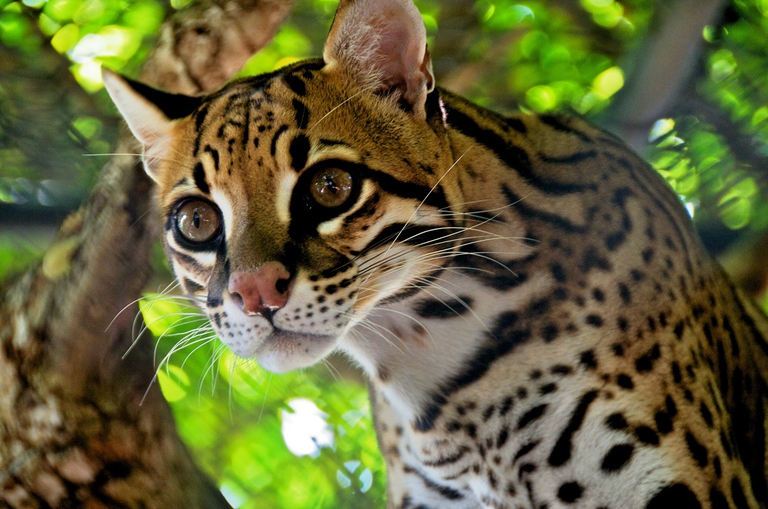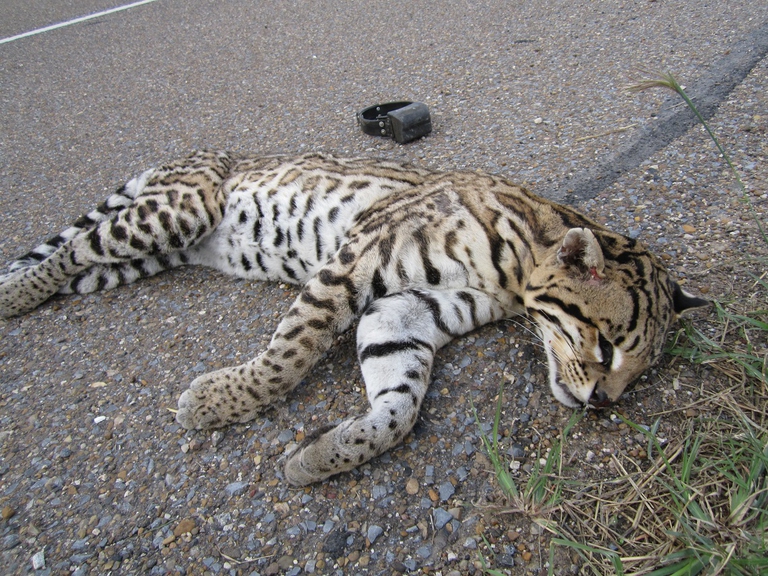
Our species took its first steps in a world covered in trees. Today, forests offer us sustenance, shelter, and clean the air that we breathe.
Gli incidenti stradali sono la principale causa di morte degli ocelot in Texas, il Paese ha dunque deciso di realizzare un attraversamento sicuro.
The ocelot (Leopardus pardalis) is a beautiful wild cat distributed across South America, Central America, Mexico, and some parts of Texas. It is threatened with extinction in the United States and, precisely in the Lone Star State, cars represent the main threat to the species.
40 per cent of ocelot deaths in Texas are caused by crashes with cars. Wildlife protection agencies, including the Center for Biological Diversity and the Animal Welfare Institute, have long been urging the creation of safe passages to allow ocelots cross the roads interrupting and fragmentating their habitat. These animals are particularly exposed to accidents as they cover long distances by virtue of their solitary habits. In addition, the oldest male of the group forces grown-up individuals to leave and find new territories, putting them in peril.
After having long ignored the request, Texas’ Ministry of Transport has finally decided to take action to protect this endangered predator. A series of underpasses for wildlife are being built, including in the Laguna Atascosa National Wildlife Refuge, a protected area located near the mouth of Rio Grande.
Four underpasses, built at about 800 metres from each another, will allow ocelots to safely cross the Highway 100, a highly-trafficked road south to Laguna Atascosa. In addition, 8 more underpasses will be built along a road crossing the protected area.
Ocelots are going through a critical moment, with less than 100 individuals surviving in the wild in the United States. These animals are also threatened by accidental killings during the hunting season and by the poisoned morsels farmers arrange for coyotes, lynxes and other predators. Habitat loss has also contributed to the rapid decline in ocelots. In the Rio Grande Valley, which represents an ideal ecosystem for ocelots, less than 5 per cent of the native plant species now survive.
Siamo anche su WhatsApp. Segui il canale ufficiale LifeGate per restare aggiornata, aggiornato sulle ultime notizie e sulle nostre attività.
![]()
Quest'opera è distribuita con Licenza Creative Commons Attribuzione - Non commerciale - Non opere derivate 4.0 Internazionale.
Our species took its first steps in a world covered in trees. Today, forests offer us sustenance, shelter, and clean the air that we breathe.
Poachers in Africa are encroaching on wildlife land and killing rhinos in travel hot spots now devoid of visitors due to the coronavirus pandemic.
Actor and environmental activist Leonardo DiCaprio has contributed two million dollars to a fund to protect Virunga National Park in Congo from threats such as terrorism, the coronavirus and poaching.
For the first time in seventeen years, Iceland’s two main whaling companies won’t resume whale hunting. The announcement concerns this year’s season but could carry into the future.
The relationship between the coronavirus and wildlife is complex: while the pandemic may lead to a reduction in the illegal trade in wild animals, it may also encourage it in other respects.
The largest coral reef in the world is severely threatened by climate change, but researchers are developing strategies that could contribute to saving the Great Barrier Reef.
NGO Free the Bears has opened a mountain sanctuary for moon bears in Laos. With the government’s help, it aims to close all bile farms by 2022.
Seychelles have extended its marine protected area, which now covers over 400,000 square kilometres, an area larger than Germany.
The tapir was reintroduced into Brazil’s Atlantic Forest, the country’s most at-risk ecosystem. The species can play a key role in the forest’s recovery.









